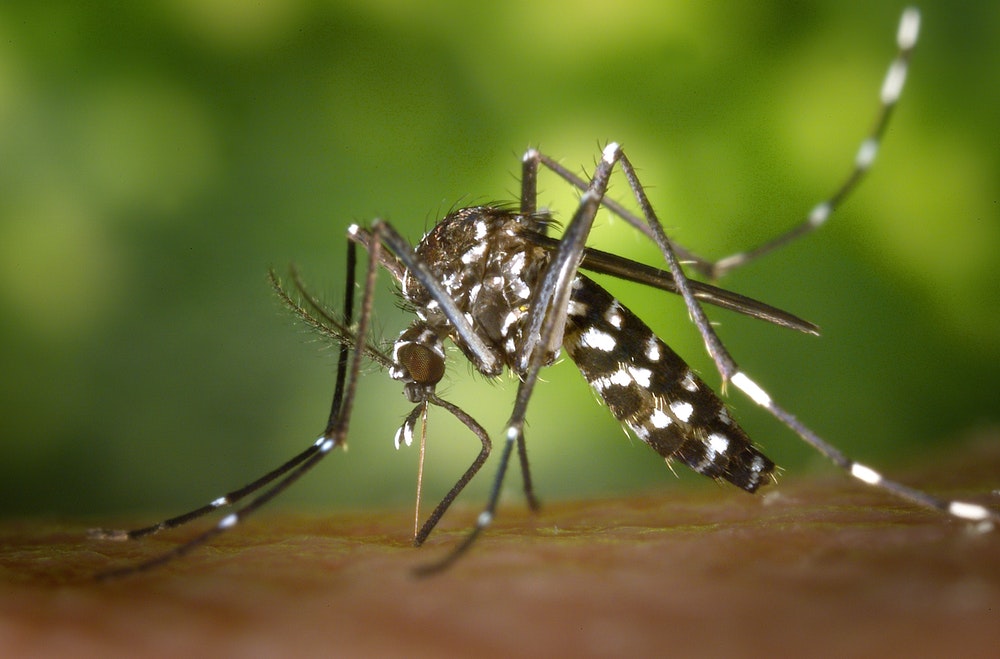A total of 468 cases reported in the week ending June 15. This is the highest number since March 2016, according to this report. Hence, here are the facts about dengue, and how to keep your children safe.
Dengue fever is widespread in Singapore and in the region of Southeast Asia. In Singapore, green, yellow and red labels indicate the increased risk of dengue fever in the various neighbourhoods. Currently, the high-risk areas include Woodlands, Chai Chee and Geylang.
Dr Leong Hoe Nam, infectious disease specialist at Mount Elizabeth Novena Hospital talks about dengue.
What is dengue fever?
The bite of an infected female Aedes mosquito transmits the vector-borne disease, dengue fever, or breakbone fever.
Dengue fever might be as mild as a fever or take on more severe forms. These include getting dengue shock syndrome and dengue haemorrhagic fever, which are potentially lethal.
Where does the disease occur?
Dengue is prevalent throughout Southeast Asia and the western Pacific islands. Recently, the disease has also been spreading rapidly in Latin America and the Caribbean.
Regardless, dengue outbreaks can occur anytime and wherever the warm weather conditions favour mosquito survival and the mosquitoes are active. “In line with global warming […] we have seen reports of dengue in Italy and the Mediterranean, as well as in Florida, USA, during summer months,” says Dr Leong.
Where do the mosquitos breed?
In a nutshell, the Aedes mosquito can fly up to 400 metres looking for water-filled containers to lay their eggs. It usually prefers to remain close to human habitation, where it can breed in clean, stagnant water in our homes. Just a spot of clean water approximately the size of a Singapore 20-cent coin is sufficient for breeding.
How does the disease spread?
Dengue fever cannot spread directly from person to person. However, when a mosquito takes a blood meal from a dengue-infected person, it becomes infected. The mosquito then transmits this to the next person they feed on.
What are the symptoms of dengue fever?
Dengue fever presents with flu-like symptoms, typically showing about one to 10 days after an infected mosquito bites the person. Symptoms usually resolve on its own within two to seven days in mild cases.
Onset symptoms include fever, headache, muscle and joint aches, high fever, pain behind the eyes, and vomiting or nausea. “Body rash tends to occur a bit later in the illness,” says Dr Leong.
“The absence of rash was identified to be a risk factor for severe dengue. This is largely due to a failure to recognise the illness”, he adds.
Severe dengue symptoms
Severe dengue can develop three to seven days after the initial onset with worsening symptoms. For example, a patient might have severe abdominal pain, persistent vomiting, bleeding gums, vomiting blood, rapid breathing, and fatigue or restlessness.

Who is at risk of dengue fever?
Younger children and people who have not had the infection before tend to have milder cases than older children and adults. However, serious problems can still develop. People with weakened immune systems, and those with a second dengue infection, may be more susceptible to developing dengue haemorrhagic fever (DHF).
When should I get checked for dengue fever?
If you’re returning from an area where dengue is prevalent, consult your doctor before symptoms begin to show.
The symptoms of fever, headache and muscle aches, are overwhelmingly similar to influenza, Chikungunya and Zika infection. Therefore, we recommend going for a blood test on day three of the illness to diagnose the disease.
How can I protect my family from dengue fever?
Expose as little skin as possible to reduce the risk of getting bitten. Dress yourself and your children in long pants, a long-sleeved shirt, socks and shoes.
While you can use a mosquito repellent with at least 10% diethyltoluamide (DEET) to repel biting pests, avoid using DEET on young children. For them, try mosquito patches, kid-safe insect repellent sprays, moisturising creams or essential oils. Finally, avoid wearing heavily scented soaps and perfumes as these are known to attract mosquitoes.
How can I prevent getting bitten at home?

At home, install window screens or insecticide-treated netting. Nets treated with insecticides will ensure mosquitoes don’t get into your home.
Next, regularly empty out, clean and scrub your plant pots, buckets, watering cans and receptacles to remove mosquito eggs. In addition, loosen soil from potted plants, preventing puddles from developing on the surface of hard soil. Find a list of potential mosquito breeding grounds here.
Is there a vaccination for dengue fever?
In October 2016, the Health Science Authority approved the dengue vaccine Dengvaxia®. Initial findings seemed to show that dengue disease could be prevented in individuals aged 12 to 45 years. Conversely, a report in 2017 later found that Dengvaxia® could worsen symptoms for those who had not previously been infected. As a result, doctors have cautioned against getting vaccinated if you’ve never had dengue before.
How do healthcare professionals diagnose dengue fever?
To properly diagnose dengue fever, your doctor would assess the symptoms and your medical history and take a blood test. In addition, he/she may also ask about your travel history. Hence, specify the countries you visited and the dates, and any contact you may have had with mosquitoes.
How is dengue fever treated?
Treatment aims to relieve the symptoms. Your doctor may advise that you rest and drink plenty of fluids to avoid dehydration from vomiting and high fever. Also, Paracetamol can be taken to bring down fever and reduce joint pains. However, avoid pain-relievers such as aspirin, ibuprofen and naproxen sodium – these can increase bleeding complications.
When should a patient suffering from dengue go to the hospital?
It doesn’t necessarily mean you are recovering even when your temperature declines. When warning signs of severe dengue are present, consult a doctor and seek hospitalisation to manage the disease. “Warning signs include severe abdominal pain, persistent vomiting, bleeding gums, vomiting blood, rapid breathing, and fatigue or restlessness,” says Dr Leong.
“Should you suspect that you have acquired dengue fever, start by drinking plenty of water.” advises Dr Leong.
What are some of the signs of dengue haemorrhagic fever to look out for?
Dengue haemorrhagic fever (DHF) is a complication of dengue fever that tends to affect children under 10 years or older adults. It starts abruptly with continuous high fever and headache.
Often, there are associated respiratory and intestinal symptoms such as sore throat, cough, nausea, vomiting, and abdominal pain. Shock can occur after two to six days if the patient remains untreated. Subsequently, symptoms progress to a sudden collapse, cool and clammy extremities, a weak pulse, and blueness around the mouth.
What are some of the complications that could result from dengue?
“Rare but known complications of dengue include myocarditis (inflammation of the heart). This could result in severe and profound hypotension (low blood pressure), heart failure and damage to peripheral nerves,” adds Dr Leong. “The latter persists for days to weeks after recovery with persistent numbness of the limbs.”
Monitor the patient closely for the first few days since shock may occur or recur unexpectedly. The mortality rate (with DHF) is significant, at about 20% without proper treatment. Most deaths occur in children, especially infants under the age of one.
For more information on dengue and prevention, check out Stop Dengue Now.













